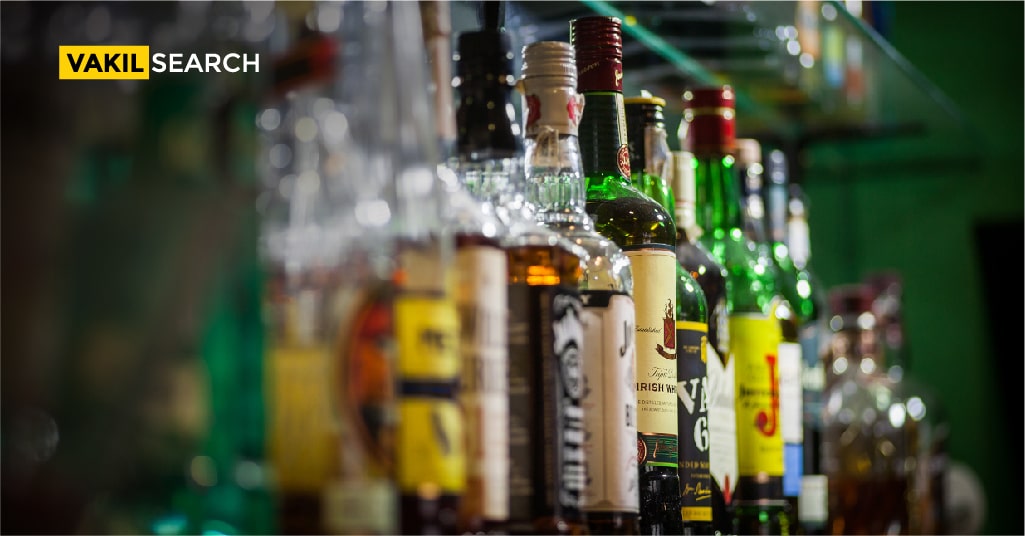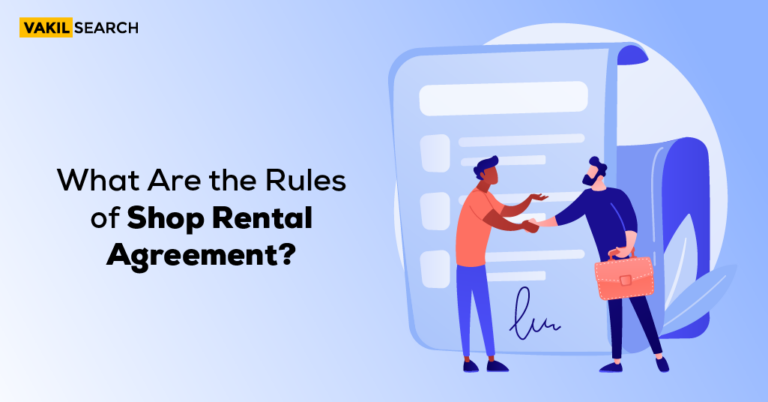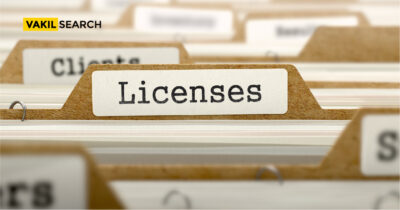Perhaps you'd like to sell alcohol in India but aren't sure how to go about it. Luckily for you, we've compiled a comprehensive guide on starting a liquor business. Everything from the different types of liquor licences, the costs involved, to the documents required for the procurement process will be covered in this article.
Obtaining a liquor license in India can be a challenging and multifaceted process, varying across states with distinct requirements and procedures. This overview aims to shed light on the general steps involved in applying for a liquor license, facilitating a smoother and expedited process. Read on to unravel the intricacies of liquor laws and the licensing framework in India.
What is a Liquor License?
To legally sell alcohol in India, securing a liquor license is imperative. Whether for liquor stores, pubs, clubs, discos, bars, hotels, or restaurants, ownership of a valid liquor license is a prerequisite. Without this license, the sale of alcohol is deemed illegal and prohibited. Liquor licenses play a crucial role in the regulatory framework, addressing the intricate socio-legal dimensions associated with the consumption and distribution of alcoholic beverages.
Liquor is more than a beverage; it carries social, legal, and cultural implications. Given its potential linkages to crimes and violent activities, the state governments meticulously control the entire spectrum of liquor-related activities, including manufacturing, production, and sales. Each state government issues liquor licenses to regulate and supervise these activities comprehensively. In legal terms, a liquor license refers to the authorization granted by the state excise department to individuals or entities engaged in the manufacturing, import, export, transport, possession, purchase, and sale of liquor and other alcoholic beverages.
It’s important to note that even for online liquor sales in India, obtaining a liquor license from the Excise Department of the respective State Government is mandatory. The following sections will delve into the specific steps involved in acquiring this essential license, ensuring compliance with legal requirements.
The Different Types of Liquor License Available in India
- Beer and Wine Licence – For those establishments who wish to sell only mild liquors such as beer and wine. Bear in mind that such businesses should not deal in hard liquor
- Restaurant Liquor Licence – For restaurants that wish to serve alcohol. This licence applies only to those establishments that earn less than 40% of their total income from the sale of liquor
- Tavern Licence – For businesses whose liquor sales make up more than half of their profits
- Brewpub Licence – For establishments that brew their own wine and beer.
- Temporary Licence – To serve liquor at a party or event with less than 20 lakh people in attendance
- FL-4 Licence – For people who wish to serve alcohol at a private party inside a private resort or apartment
- L1 – Necessary for wholesale supply of Indian liquor
- L3 – Allows hotels to serve foreign liquors to guests in their hotel rooms
- L5 – Allows hotels to serve liquor in bars or restaurants within hotel premises
- L6 – Suitable for retail vendors of beers and Indian liquors
- L19 – Allows clubs to serve foreign alcohol.
How Can People Apply for a Liquor License in India?
Since every state has different liquor laws, you must consult an expert before proceeding to avoid legal hassles later. Nevertheless, here is a look at the general process involved in obtaining a liquor licence in India.
- First and foremost, visit the state excise department’s official website to get an idea of the process. You can also visit their physical office to gain some insight into what is expected
- Once you have an idea regarding the process involved, decide on what type of licence you need
- Next, collect the required documents to start the application process.
- Download the application form for your desired type of licence from the state excise department’s website
- Duly fill the form with the required details and attach supporting documents wherever necessary
- Some of the details you will need to mention include details regarding your place of business, personal information, and mention the types of liquor you wish to sell
- Submit the filled out form to the concerned authority and pay the applicable application fee
- The authority will then verify all the details provided. They may also visit your business premises to check whether everything is in order. In case they find that something is amiss, they may ask for additional supporting documents, which you must provide
- Once the verification process is complete, they will post a notice regarding your request for a liquor licence on your business premises. This is to notify the locals about your new business. If they wish to raise objections, they may do so within a specified period, and you will then have to justify why your business will not be a hindrance to them
- If no one raises any successful objection, the authority will grant you a liquor license, and you may begin operations.
Cost of a Liquor License Within India
Since liquor laws vary from state to state, the cost of obtaining a licence also varies depending on your place of business. Moreover, the cost of obtaining a licence also depends on the type of licence you want and the size and nature of your business. The list below is a breakdown of the average cost of a liquor licence in India:
- Temporary Licence – To serve liquor at a party or event in a town with less than 20 lakh people, you will have to pay either:
- ₹7,000 if you wish to serve liquor to less than 100 people
- ₹10,000 if you wish to serve liquor to more than 100 people
- FL-4 Licence – Approximately ₹13,000.
- Serving Liquor in Rooms – To serve liquor in a restaurant, you will have to pay either:
- ₹5,00,000 for serving in hotel rooms
- ₹1,50,000 for serving in a beer shop or restaurant
- State Liquor Licence – Anywhere between ₹5000 and ₹15,000.
Documents Required for Obtaining a Liquor Licence
- Applicant’s identity proof and address proof
- Address proof of the business premises
- NOC from the state fire department
- NOC from the concerned municipal corporation
- Duly filled application form
- MoA and AoA of companies, if applicable
- Latest ITR copy
- Applicant’s passport size photograph
- Affidavit regarding lack of criminal records in the applicant’s name
- Affidavit declaring the applicant has no pending dues in their name.
- What is the legal drinking age in different states in India?
Given the diversity in liquor regulations across Indian states, the legal drinking age varies significantly. Here’s a breakdown of the legal drinking age in different states:
25 Years:
– Delhi
– Punjab
– Haryana
– Chandigarh
– Maharashtra
– Dadra and Nagar Haveli, Daman and Diu
*Note: Delhi is considering lowering the drinking age for wine and beer to 21, while it will remain 25 for hard liquor.*
23 Years:
– Kerala
18 Years:
– Rajasthan
– Goa
– Himachal Pradesh
– Andaman & Nicobar
– Puducherry
– Sikkim
– Jammu and Kashmir
– Karnataka
21 Years:
– Andhra Pradesh
– Arunachal Pradesh
– Assam
– Chhattisgarh
– Jharkhand
– Maharashtra (for beer only)
– Meghalaya
– Mizoram
– Madhya Pradesh
– Odisha
– Tamil Nadu
– Telangana
– Tripura
– Uttar Pradesh
– Uttarakhand
– West Bengal
States with Alcohol Consumption Ban:
– Bihar
– Gujarat
– Lakshadweep (Consumption legal only on the resort island of Bangaram)
– Manipur (Partial prohibition since 2002)
– Nagaland
*Note: Karnataka has banned arrack since July 1, 2007.*
Understanding and adhering to the legal drinking age in a particular state is crucial, as violation of these regulations can lead to legal consequences. Always be aware of the local laws and guidelines governing alcohol consumption in your area.
Laws that Regulate Liquor Consumption in India
In India, the regulations surrounding the consumption, manufacturing, and distribution of liquor fall under the jurisdiction of individual states. Each state has its set of liquor laws and licensing procedures, making it essential for establishments to obtain a valid liquor license. Here’s an overview of key liquor laws in various states:
- The Delhi Excise Act, 2009:
– Governs matters related to the manufacture, import, export, transport, possession, purchase, sale, etc., of liquor in Delhi.
– Sets the legal drinking age at 25 years in Delhi.
- The Bombay Prohibition Act 1949:
– Enforces and promotes alcohol prohibition in the state of Bombay (now applicable in Gujarat after the division).
– Requires a permit for purchasing, possessing, serving, or consuming liquor.
- The Goa Excise Duty Act and Rules, 1964:
– Regulates liquor-related activities in Goa.
– Defines regulations such as legal drinking age, excise authorities, prohibitions, and licensing rules.
- Tamil Nadu Liquor(License and Permit) Rules, 1981:
– Governs the manufacture, import, export, transport, possession, purchase, sale, etc., of liquor in Tamil Nadu.
– Imposes restrictions on the import and export of liquor.
- Uttar Pradesh (United Provinces Excise Act, 1910):
– Promotes, enforces, and carries into effect the policy of prohibiting the import, export, transport, manufacture, sale, and possession of liquor and intoxicating drugs in Uttar Pradesh.
– Requires a permit/license for the import and export of liquor.
- West Bengal (Bengal Excise Act 1909):
– Regulates liquor-related activities in West Bengal.
– Grants exclusive powers to the State Government to define “country” and “foreign” liquor.
- Haryana (Punjab Excise Act, 1914):
– Governs the manufacture, import, export, transport, possession, purchase, sale, etc., of liquor in Haryana.
– Sets the legal age of drinking at 25 years.
- Karnataka Excise Act, 1965:
– Regulates liquor-related activities in Karnataka.
– Sets the legal age of drinking at 18 years in Karnataka.
These state-specific laws cover a range of aspects, including licensing procedures, legal drinking age, prohibitions, and penalties. It’s crucial for businesses to be aware of and comply with the specific regulations in their respective states.
Additionally, Article 47 of the Indian Constitution emphasizes the duty of the State to bring prohibition on the consumption of intoxicating drinks and drugs injurious to health, except for medicinal purposes. As a result, strict bans on alcohol are enforced in certain states.
Classification of Liquor Licenses
In India, liquor licenses are classified based on the type of alcohol and the nature of the establishment. While some states offer a single license covering various types of alcohol, others may require separate licenses for specific classes. Here are common classifications of liquor licenses:
- Beer and Wine License:
– Scope: Allows the sale of soft and mild liquors such as beers and wine.
– Restrictions: Prohibits dealing with hard liquor once obtained.
- Restaurant Liquor License (All-Liquor License):
– Scope: Permits restaurants to serve alcohol on their premises.
– Criteria: Typically granted to restaurants where the primary revenue is generated from food sales, with a limited percentage (not exceeding 40%) from liquor sales.
- Tavern Liquor License:
– Scope: Granted to establishments where alcohol sales contribute a significant portion to profits, even if food items are offered.
– Criteria: The majority of profits come from alcohol sales.
- Brewpub Liquor License:
– Scope: Granted to establishments engaged in the brewing or making of their beer and wine.
These licenses serve to regulate and control the sale, distribution, and consumption of different types of alcoholic beverages. The specific regulations and eligibility criteria may vary from state to state. It’s important for businesses to determine the appropriate license category based on their offerings and operations.
Validity and Renewal of License
- Validity:
A Liquor License in India is generally granted with a validity period of 1 year from the date of issue. This period allows the licensee to legally sell and distribute alcoholic beverages as specified in the license.
- Renewal:
The renewal of a Liquor License is an annual process that allows the licensee to extend the validity of the license beyond the initial year. Key points regarding renewal include:
Application Submission: Licensees must submit a renewal application before thirty days from the expiry date of the existing license.
Renewal Fee: The renewal process involves the payment of a renewal fee, determined by the State Excise Department. The fee may vary based on the type and class of the license.
Conduct and Goodwill: The renewal fee may be subject to reduction based on the conduct and goodwill of the licensee.
Revocation of the Liquor License
A Liquor License may face revocation if the licensee engages in specific prohibited activities. Grounds for revocation include:
Serving Liquor on Dry Days: Certain days, known as dry days, prohibit the sale and service of alcoholic beverages. Violating this restriction can lead to license revocation.
Serving Liquors to Minors: Providing alcoholic beverages to individuals below the legal drinking age is a serious offense and can result in the revocation of the license.
Violations of Rules and Laws: Any breach of the rules and laws set forth by the State Excise Department or other regulatory bodies may lead to the revocation of the Liquor License.
Types of Liquor Licenses
| TYPE OF LIQUOR LICENSE | PURPOSE OF LICENSE |
| L1 | Granted for wholesale supply of Indian liquor to other license holders. |
| L3/L5 |
L3 is granted to hotels in order to permit the serving of foreign liquors to residents staying in hotel rooms. L5 is granted to serve liquor in bars or restaurants which are situated in the hotel premises. |
| L6 | Issued to the retail vendors of Beers and Indian Liquors. |
| L19 | Granted to a club permitted to serve foreign liquor. |
| L49 | Granted to any person for serving liquor in any party or function at specific premises anywhere in a state. |
How VakilSearch Can Assist?
Our team of legal experts will be able to provide you with the guidance you require to start a successful liquor business. Here’s how:
- We can help identify the type of licenses and registrations such as (ex: fssai licence registration) that you need to start your venture
- Our lawyers can help obtain and organize all the documentation necessary
- Additionally, we also provide services related to incorporation, enabling you to register your business quickly and efficiently
- Most importantly, our team can help you procure all other ancillary licenses and tax registrations you will need to make your business compliant.
FAQ’s
How much liquor license cost in India?
The cost of a liquor license in India varies significantly depending on several factors, including:
State/Union Territory: Each state and UT has its own liquor licensing laws and fee structure.
Type of License: Different types of licenses (retail, wholesale, manufacturing) have different costs.
Location: The license cost can vary based on the city, locality, and type of establishment (restaurant, bar, standalone shop).
How can I get alcohol permit in India?
The process of obtaining an alcohol permit depends on the state and type of permit you need. Typically, you need to:
1. Apply to the excise department of your state.
2. Submit required documents (proof of identity, address, business registration, etc.).
3. Pay the applicable fees.
4. Pass inspections and meet licensing requirements.
Can you sell alcohol in India?
Selling alcohol requires a valid liquor license and adhering to various laws and regulations. These regulations may involve:
* Age restrictions for purchase and consumption.
* Specific timings for selling alcohol.
* Restrictions on location and advertising.
* Payment of taxes and duties.
What is the fee for L 50 permit in Punjab?
The lifetime L-50 permit fee in Punjab has been reduced from Rs 20,000 to Rs 10,000.
Can I start alcohol business in India?
Starting an alcohol business requires careful planning and consideration of various factors, including:
* Obtaining the necessary licenses and permits.
* Securing funding and identifying a suitable location.
* Building relationships with suppliers and distributors.
* Complying with all legal and regulatory requirements.
* Developing a marketing and sales strategy.
Is liquor shop profitable in India?
The profitability of a liquor shop depends on various factors like location, product selection, marketing strategy and efficient management. While it can be a profitable business venture, it requires careful planning and execution.
How to start alcohol business?
Starting an alcohol business requires careful planning and consideration of various factors, including:
* Obtaining the necessary licenses and permits.
* Securing funding and identifying a suitable location.
* Building relationships with suppliers and distributors.
* Complying with all legal and regulatory requirements.
* Developing a marketing and sales strategy.
What is the cost of pub license in India?
Similar to liquor licenses, the cost of a pub license varies depending on the state, location, and size of the establishment. On average, it can range from Rs. 50,000 to Rs. 5 lakhs.
Do I need ID to buy alcohol in India?
In India, it is mandatory to have a valid government-issued ID proof (Aadhaar card, voter ID, passport) to purchase alcohol.
Is it legal to drink in car?
Drinking alcohol while driving or being in a moving vehicle is illegal in India and punishable by law.
Can I sell beer in India?
Selling beer requires a valid liquor license specific to beer or a general retail liquor license that includes beer. The process and regulations are similar to other alcoholic beverages.
Can 18 year old drink beer in India?
The legal drinking age in India varies from state to state. Consuming alcohol before the state mandated legal drinking age is illegal.
How much does L 10 license cost?
The cost of an L-10 license varies significantly depending on the state and type of establishment. It can range from Rs. 10,000 to Rs. 1 lakh.
What is the cost of liquor license in Punjab?
As mentioned earlier, liquor license costs in Punjab vary depending on factors like license type and location. You can find detailed information and fee schedules on the official website of the Punjab Excise Department.
Is alcohol business a good idea?
Whether an alcohol business is a good idea depends on your individual circumstances, market research and business plan. While it can be a lucrative venture, it also involves high competition, legal complexities and social responsibility considerations.
Read More:-










